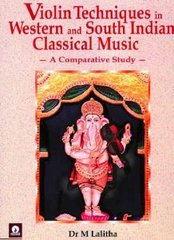Moonplugged Sat, 15th jan at CKP
Introducing moonplugged Series of music concerts, showcasing the stars…..
Guruskoolmusic, who catalyse the unique musician’s movement known as the FREEDOM JAM, are pleased to launch the MOONPLUGGED music concerts featuring master musicians of various genres who will weave tapestries in sound in a firelit open air ambience.
At 6 pm on Saturday 15th Jan, 2005.at the open air theatre in the Chitra Kala Parishad,on Kumara Krupa road, Bangalore featuring:
The legendary saxophonist Sakari Kukko’s PIIRPAUKE (Finland) With special guest – Konarak Reddy
TRANS GLOBAL FUSION feat. Lalitha Nandini -(Chennai)
ESPERANTO feat. Geetha Navale -(Bangalore) with special guest Praksah Sontakke.
Come, be delighted!!
The event is supported by independent record label KREEK and WORLD SPACE satellite radio.Passes are available at WORLD SPACE lounges on Brigade Road and Jayanagar and at the venue .
http://www.guruskoolmusic.com
The concept
‘Soma’ the moon is spoken of in the Vedas as the source of delight and is truly a great inspiration for music.The moonplugged series of concerts has thus been happening for about a year now at the creekside Guruskool amphitheatre on the outskirts of Bangalore.
The experience of listening to great music amidst nature, illuminated by firelight has been so transporting that we wish to share this experience with a larger audience. It has thus been chosen to hold it at the beautiful open air theatre in the Chitra Kala Parishad arts complex on Kumara Krupa road where we wish to recreate the magic in the heart of Bangalore city.
PIIRPAUKE ( Finland) World Music
featuring Sakari Kukko on Sax, Roi Rottonien on Cello, Olavi Louhivuori Drumset , Lauri Salkovski on Bass, and Seva on Vocals, Emma Salkovski Vocals with special guest Bangalore’s own Konarak Reddy on guitar.
A never-ending story of musical travel excitement and brilliance. not following fashions but pursuing new fresh interests and ideas from band leader Sakari Kukko.Somehow Piirpauke always manages to make the diverse material sound like their own.
By now, most people are aware of World Music and realize that it simply means the appreciation of the best tunes from all over the world. Some people saw it coming years and years ago and were playing it before anybody had thought of calling it World Music or anything.
Sakari Kukko – visionary, world traveller and multi-instrumentalist from Finland – saw it coming more than 20 years ago, when he formed the first line-up of Piirpauke and was immediately awarded with a hit. Since that first success with a poignant Karelian folk tune, Sakari has guided his ever-improving line-ups on musical journeys through the delights of Balkan, Turkey, Africa, Latin America and points in between. After more than a dozen albums and many tours and concerts in Spain, Scandinavia, Germany, Switzerland, Belgium, Holland, Cuba, Soviet Union, India and Turkey the band is now ready to set their sights further afield. Sakari and his saxes, flutes and keyboards have never been content with merely polite “fusion music”, but have always striven to draw the most fire and beauty from the most inspiring sources, no matter where. With his present international line-up of master musicians from Finland, Sakari is truly an ambassador of World Music.
KonarakReddy has often been called India’s best and most innovative guitarist. His original training was in western classical music on Classical Guitar, and he studied classical theory with Ms. Marion Fewkes. He completed his LTCL and LRSM music degrees through Royal School and Trinity College of Music, London. In 1976 he studied jazz composition, arrangement and performance for one year at Berkley College of Music, Boston.
TRANS GLOBAL FUSION feat .Lalitha Nandini – Chennai – Carnatic fusion
Dr M Lalitha and M Nandini – Violins ,Joel – Keyboards Shantakumar-Tavil , Mrs Subbulakshmi Muthuswamy – Tala ,
The ace Violin duo of the sisters Lalitha & Nandhini . Who are nieces of the famous violin trio viz L Vaidyanathan, L Subramaniarn and L Shankar. They even had the same guru, who’s also their grandpa, the illustrious V Lakshminarayana..
Their music sounds like a variation of Bach’s toccata and fugue, with elements of jazz and Carnatic styles thrown in. Lalitha, who was recently awarded a doctorate for her thesis on “A Comparative Study of Violin Techniques in Western and South Indian Classical Styles”, They have played to audiences all over the world and last august held 10,000 strong crowd spellbound at the FREEDOM JAM festival in Bangalore.
.ESPERANTO feat. Geetha Navale -(Bangalore)
Geetha Navale on Veena, Michael Sorensen on Blues Harp, Gopal Navale on Guitar and Nataraj on percussion & drumset, Krishna Prasad on Ghatam and With special guest Prakash Sontakke on Hawaian Guitar.
Esperanto’s music demonstrates the continuing beneficial influence of Indian music upon world culture.
It has expanded its musical vision through continuous collaborations with musicians from around the world at Guruskool, their lush residential world music lab on the outskirts of Bangalore, the esperanto project has over the years evolved and is widely appreciated for its uncanny ability to present various styles of music in settings that are exotically charming but still accessible .
Geetha Navale is an internationally acclaimed carnatic veena player known for her very ‘tasty’ sound and the ability to blend the ancient strings of the veena with ‘avant garde’ jazz/rock idioms. Her playing has left audiences in ‘over the edge’ jazz clubs in New York breathless, dazzled grunge clubs in Seattle as well as gladdened the hearts of the devout in many a small temple in India.
Prakash Sontakke is adept at slide guitar, vocal and violin and is one of the most respected Hindustani classical performers in the City.
The concert concludes with a grand finale performed by musicians drawn form all the groups.
Come, be delighted!!




